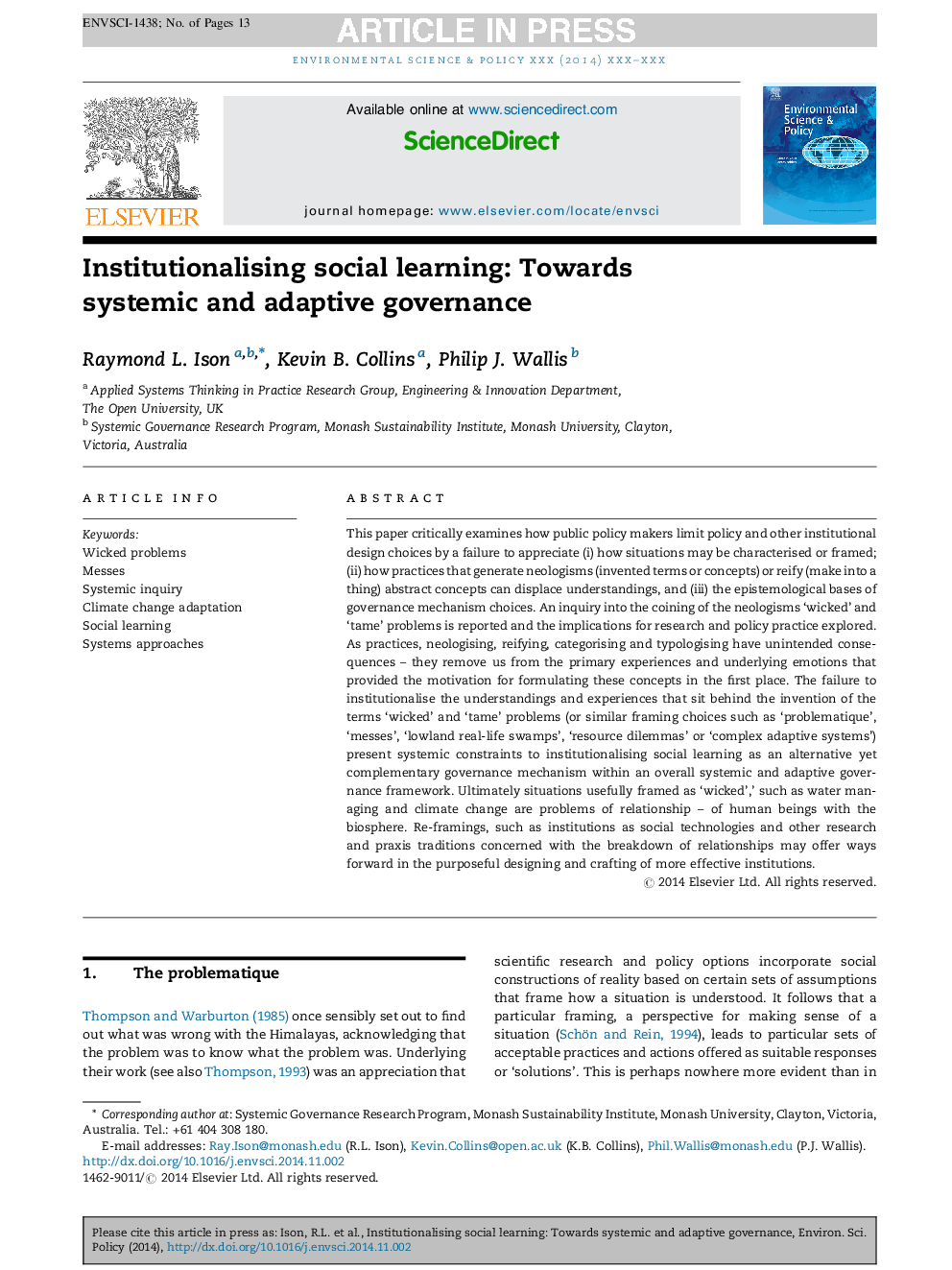| Article ID | Journal | Published Year | Pages | File Type |
|---|---|---|---|---|
| 10504578 | Environmental Science & Policy | 2015 | 13 Pages |
Abstract
This paper critically examines how public policy makers limit policy and other institutional design choices by a failure to appreciate (i) how situations may be characterised or framed; (ii) how practices that generate neologisms (invented terms or concepts) or reify (make into a thing) abstract concepts can displace understandings, and (iii) the epistemological bases of governance mechanism choices. An inquiry into the coining of the neologisms 'wicked' and 'tame' problems is reported and the implications for research and policy practice explored. As practices, neologising, reifying, categorising and typologising have unintended consequences - they remove us from the primary experiences and underlying emotions that provided the motivation for formulating these concepts in the first place. The failure to institutionalise the understandings and experiences that sit behind the invention of the terms 'wicked' and 'tame' problems (or similar framing choices such as 'problematique', 'messes', 'lowland real-life swamps', 'resource dilemmas' or 'complex adaptive systems') present systemic constraints to institutionalising social learning as an alternative yet complementary governance mechanism within an overall systemic and adaptive governance framework. Ultimately situations usefully framed as 'wicked',' such as water managing and climate change are problems of relationship - of human beings with the biosphere. Re-framings, such as institutions as social technologies and other research and praxis traditions concerned with the breakdown of relationships may offer ways forward in the purposeful designing and crafting of more effective institutions.
Related Topics
Physical Sciences and Engineering
Energy
Renewable Energy, Sustainability and the Environment
Authors
Raymond L. Ison, Kevin B. Collins, Philip J. Wallis,
